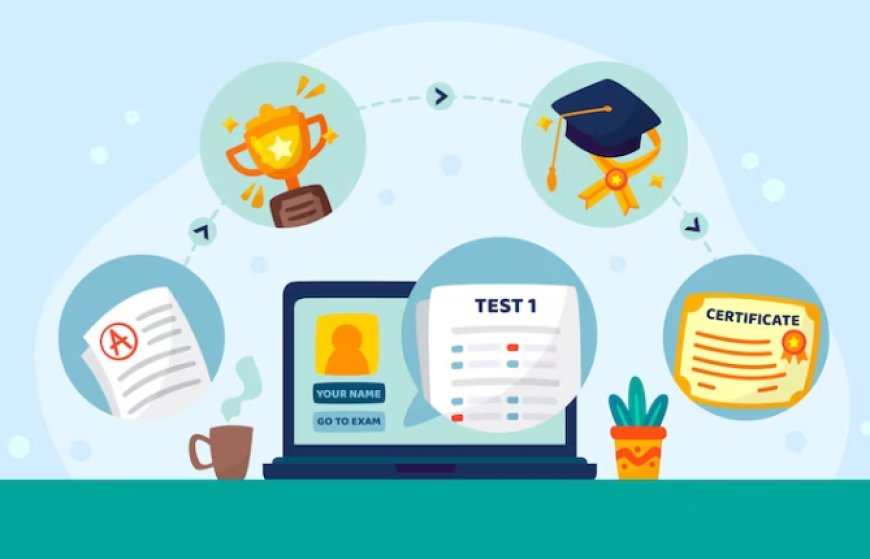Data Science Course Certification
Master data science with our certified course. Gain practical skills in analytics, machine learning, and more. Enroll now!

After finishing a thorough Data Science course, I aim to certify my skills in the field. This certification will confirm my knowledge and abilities in handling data, analyzing trends, and making useful predictions. I'm excited to showcase my understanding of programming languages like Python, statistical methods, and machine learning techniques. This credential will not only endorse my expertise but also open doors to exciting opportunities in various industries where data plays a crucial role. I'm eager to apply my newfound knowledge and contribute meaningfully to solving real-world problems through data-driven insights.
Picking the right certification is a big deal after completing the Data Science course. It's not just about boosting my resume but also getting hands-on practice and being recognized by industries. I'm on the lookout for a program that's not just about theory but also throws me into real-world scenarios. Practical experience matters a lot to me. Plus, I want a certification that companies respect. Something that screams, "This person knows their stuff!" Finding that perfect match feels like searching for a needle in a haystack, but I'm determined to discover the one that'll truly level up my Data Science journey.
So, how does one navigate the number of options and challenges to obtain a data science certification successfully? What are the crucial steps and considerations for aspiring data scientists to achieve their goals?
Data science courses are educational programs designed to provide individuals with the knowledge and skills necessary to analyze and interpret complex data sets. These courses cover a wide array of topics, including statistics, machine learning, data visualization, and programming languages like Python or R. They often come in various formats, such as online courses, bootcamps, university programs, and specialized workshops.
Essential Steps Towards Certification
Define Your Goals:
-
Identify Purpose: Understand why data science is appealing to you. Is it a desire to switch careers, advance professionally, or a genuine interest in the field?
-
Clarity in Objectives: Define clear objectives that will guide your choice of courses. If it's a career shift, focus on courses that offer comprehensive career-oriented content. For personal interest, a broader exploration might be suitable.
Research Courses:
-
Platform Exploration: Explore platforms renowned for their data science courses like Coursera, edX, or Udacity. These platforms often provide structured and credible programs.
-
Assess Course Quality: Delve into reviews, course outlines, and feedback from previous learners. Look for information regarding the depth of content, instructor expertise, and practical application.
Assess Prerequisites:
-
Check Course Requirements: Evaluate prerequisites for courses. Some may expect prior knowledge in programming languages (such as Python, and R), statistics, or mathematical concepts.
-
Address Knowledge Gaps: If you lack these prerequisites, consider preparatory courses or tutorials to bridge the gap before diving into the main data science curriculum.
Choose Wisely:
-
Learning Style Consideration: Reflect on your learning preferences. Are you more comfortable with self-paced learning or do you thrive in an instructor-led environment?
-
Factors for Decision: Consider course duration, relevance of content to your goals, and flexibility in scheduling. Opt for a course that best fits your learning style and requirements.
Commitment and Consistency:
-
Scheduled Learning Time: Allocate dedicated time consistently to engage with course materials. Consistency is key to comprehending complex data science concepts effectively.
-
Staying Focused: Minimize distractions during study time to maximize learning outcomes and absorb the material thoroughly.
Practice and Projects:
-
Application of Knowledge: Practical application reinforces theoretical learning. Engage in hands-on projects, such as analyzing real datasets, building models, and creating visual representations.
-
Real-world Simulations: Working on projects mimics real-world scenarios, enhancing your problem-solving skills and deepening your understanding.
Networking and Community:
-
Engagement in Forums: Participate actively in online forums and discussion groups related to data science. Engaging with peers and professionals can provide insights, advice, and opportunities.
-
Building Connections: Networking events and social media groups are platforms to build professional connections. These connections might lead to potential job opportunities or collaborations.
Certification and Beyond:
-
Validating Skills: Upon completing the course, earn certification to validate your skills. This certification serves as tangible proof of your competence in data science.
-
Showcasing Expertise: Display your newly acquired skills and projects on professional platforms like LinkedIn and GitHub to attract potential employers or collaborators.
-
Continuous Learning: The journey doesn't end with certification. Stay updated with the latest trends and advancements in data science through continuous learning, attending workshops, or exploring advanced courses.
The Responsibility of Data Science Course Certifications
Expertise Validation and Skills Verification: Certifications act as a formal recognition of your skills and expertise in the field of data science. They validate your understanding of core concepts, tools, methodologies, and their practical application. For employers, this verification of skills minimizes uncertainty about your capabilities, making you a more attractive candidate.
Career Advancement and Growth Opportunities: In today's competitive job market, certifications can be a differentiator. They often lead to better job prospects, higher chances of landing interviews, and increased possibilities for promotions or salary raises. Employers frequently seek certified professionals, especially for specialized roles within data science.
Improved Credibility and Trustworthiness: Holding a certification from a reputable institution or a well-recognized certification body enhances your credibility. It signals to employers, clients, or colleagues that you have invested time and effort into mastering data science, instilling confidence in your abilities and knowledge.
Competitive Edge and Marketability: Certifications make you stand out among other candidates. They demonstrate your commitment to learning and staying updated with the latest tools, technologies, and best practices. This competitive edge can significantly impact your employability and career growth prospects.
Structured Learning and Skill Development: Certification courses often provide a structured learning path, guiding you through foundational to advanced topics. This structured approach ensures that you cover essential aspects of data science systematically, leading to a comprehensive skill set.
Access to Exclusive Networks and Resources: Some certification programs offer access to exclusive communities, forums, or resources where you can network with peers, industry experts, and potential employers. These networks can provide opportunities for collaboration, mentorship, and staying updated with industry trends.
Alignment with Industry Standards: Certifications are typically designed to align with industry standards, ensuring that you learn and apply best practices. Employers value professionals who understand and adhere to these standards, making certified individuals more sought after.
Adaptability and Versatility: Data science certifications often cover a wide range of tools, techniques, and methodologies. This diverse learning equips you with the ability to adapt to various data-related challenges across different industries or roles, making you a versatile asset.
After thorough research, I've committed to an esteemed Data Science certification course renowned for its practical approach. With a focus on hands-on projects and real-world case studies, this program promises to elevate my career trajectory. The recognized credentials I'll earn won't just open doors professionally; they'll instill the confidence and expertise needed to thrive in the dynamic realm of Data Science. This deliberate choice reflects a dedicated step toward acquiring practical skills and industry knowledge, ensuring a competitive edge and the capability to excel in the multifaceted landscape of data-driven insights.
Refer these blogs:
- Data Science Bootcamps vs Traditional University Programs
- Data Science Tools: R, Python, and SAS
- Data Science Career-2023





































